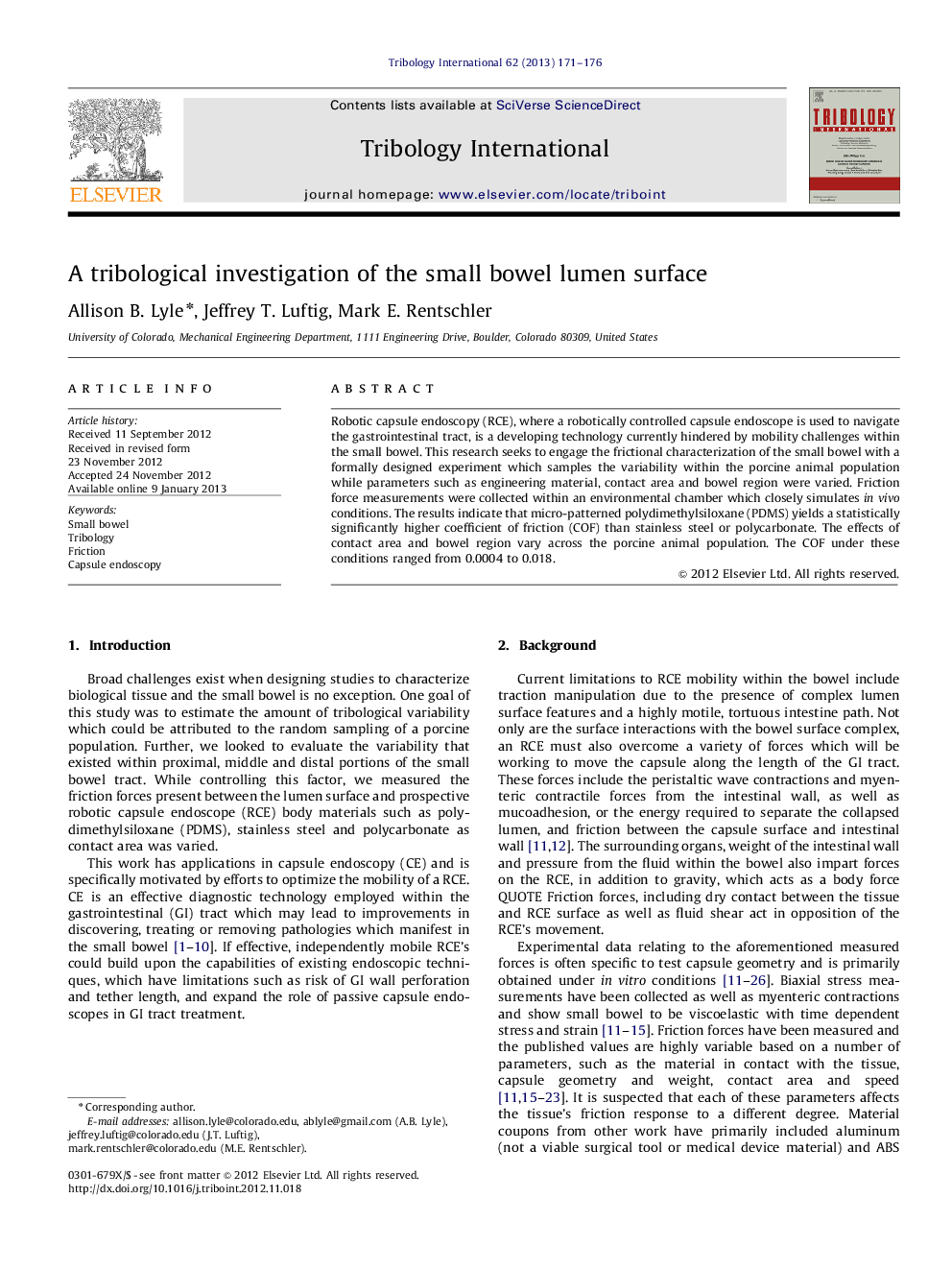| Article ID | Journal | Published Year | Pages | File Type |
|---|---|---|---|---|
| 615056 | Tribology International | 2013 | 6 Pages |
Robotic capsule endoscopy (RCE), where a robotically controlled capsule endoscope is used to navigate the gastrointestinal tract, is a developing technology currently hindered by mobility challenges within the small bowel. This research seeks to engage the frictional characterization of the small bowel with a formally designed experiment which samples the variability within the porcine animal population while parameters such as engineering material, contact area and bowel region were varied. Friction force measurements were collected within an environmental chamber which closely simulates in vivo conditions. The results indicate that micro-patterned polydimethylsiloxane (PDMS) yields a statistically significantly higher coefficient of friction (COF) than stainless steel or polycarbonate. The effects of contact area and bowel region vary across the porcine animal population. The COF under these conditions ranged from 0.0004 to 0.018.
► Study of porcine small bowel lumen surface friction for use in capsule endoscopy. ► The coefficient of friction (COF) range for all test parameters was 0.0004–0.018. ► 42–95% of variability within 3 study pigs was explained by treatment combination. ► Micro-patterned PDMS has larger COF than stainless steel and polycarbonate. ► COF varies between the proximal, middle and distal small bowel regions (p<0.05).
